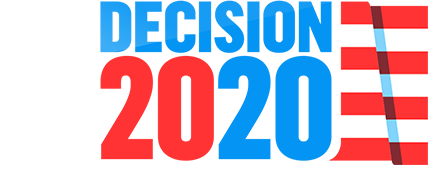Changes in Democratic debate requirements cause controversy

By: Nolan Cleary
Staff Writer
With the 2020 election heating up, many political experts view the most recent Democratic debate as a last ditch effort for some of the minor candidates to gain steam. This year, only 10 out of 20 candidates made it to the debate stage.
The Democratic National Committee now requires that candidates reach 3% in at least five verified polls and reach the 130,000 individual donor threshold.
New York Senator Kirsten Gillibrand, former U.S. representative of the Hudson River Valley, dropped out after failing to meet the requirements.
Some students at Hudson Valley Community College thought the terms were fair.
“There’s at least 20 people, [so] you have to sort of divide things up,” said Micheal Brown, a liberal individual studies major.
Dorinda Hardage, a Democrat English major, agreed stating,“You eliminate the people who have the smaller percentage,” she continued. “That seems fair.”
“They have so many candidates in that party going for [the nomination],” said Matthew Mannato, a media and communications major. “It’s going to be harder for the Democrats to really find someone who’s right for them.”
Taliqramls-Moore, a liberal leaning mechanical engineering and technology major, disagreed and said that he wasn’t a fan of the new requirements.
“I feel like it’s not really [a] good idea to limit how many people are running because it adds more diversity,” he stated.
Hawaii Congresswoman Tulsi Gabbard, another candidate who didn’t meet the new requirements, was initially thought to have received two qualifying polls, which put her at 3%.
RealClear Politics determined Gabbard had drawn better numbers than Minnesota Senator Amy Klobachar and former U.S. Secretary of Housing and Urban Development, Julian Castro, who both made the debate stage.
Eric Jackman, Gabbard’s New Hampshire Cultural Attaché, said the rules are fair, but that their treatment of Gabbard is not.
“Why is it that a poll that is run by a publication like “The Economist,” one of the finest political, social, economic publications in the whole world that has Tulsi at a poll at 2% or higher, why does that poll not count?” he asked.
“I definitely feel like the person who’s polling better should be the person who gets a chance to speak,” agreed Jason Gardner, an independent computer information systems major.
Jackman said that the polls may have been disqualified due to Gabbard’s resignation as Vice Chair of the Democratic National Committee.
This is due to Democratic National Committee Chair Debbie Wassermann Shultz asking for Gabbard’s endorsement of former U.S. Secretary of State Hillary Clinton for President in 2016.
Gabbard refused and endorsed Vermont Senator Bernie Sanders instead. WikiLeaks documents revealed a coordinated attempt to make Clinton the nominee, forcing Shultz to resign from her position as well.
“If you pull back a few layers, you’ll find some conflict of interest.” Jackman said. “You’ll find some wheeling and dealing from big shots in the DNC for what happened in 2016.”
Robert Whittaker, a political science professor at Hudson Valley Community College, said that this could be beneficial.
“I think the Democrats understand that they need a way to begin to narrow the field a little bit,” he stated.
According to Whittaker, during the 2016 election, especially the Republican side when there were 16 or 17 candidates, it was difficult to access the candidates in any meaningful way.
